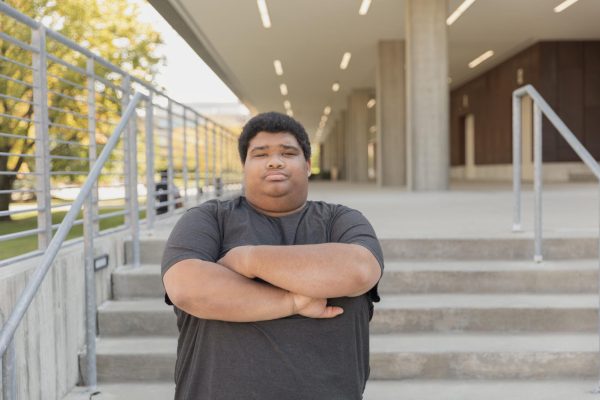Perspective: Our identities matter, and it’s time to talk about it
“I don’t see color, I just see everyone as equals.”
These sentiments are common in everyday public discourse about race.
Depending on the context—perhaps, a room full of white people—this comment may go completely unnoticed and with no critique. Social institutions and structures work on hierarchical platforms, which is why the archetype for individuals in power is almost always white, straight, middle-to-upper-class, able-bodied, and male.
When you decide not to see color, you have decided not to recognize the privileges that people are benefiting from solely from underlying (or overt) racist, heterosexist, classist, ableist, patriarchal (and the list goes on) structures that are in place.
Claiming everyone as equals eliminates the historical and political contexts that led each marginalized group to where they are today. It eliminates America’s commodification of slavery, the Civil Rights Movement, Ferguson, the Stonewall Riots, Women’s Suffrage Movement, the Americans with Disabilities Act, and so many more social movements and reforms before us.
Colorblindness comes from a place of privilege; we all have privilege, but it is how you use it that affects the structures and institutions we interact with.
Acknowledging your personal privilege and identifying how you have benefited from it is important for promoting equity within social change. Ask questions like, “why are transgender women of color the most prominent group of individuals to have violence perpetuated against them? Is it because they are members of multiple, intersecting marginalized identity groups?” (Answer: yes).
Colorblindness, and blindness to other identities, will only help for non-marginalized groups to continue to reap benefits that others are excluded from.
I am writing this, not only because I am extremely passionate about creating open dialogues about race and other identities, is because when I submitted a question about diversity, equity and inclusion during the Student Body Presidential Candidate Debate, one of the answers I got back was this narrative of colorblindness.
The Center for Multicultural Initiatives, the Leadership and Volunteer Center, the Gender and Sexuality Center, the Multicultural Affair Director and Committee on Student Congress, and countless other student organizations on campus are working to create these dialogues that give voices to marginalized groups.
Our identities matter — they work both to limit and grant us privileges, but it is what we do with those privileges that will affect public culture towards social change.
If you think that you don’t see color, ask yourself how you have benefited from your identities.











